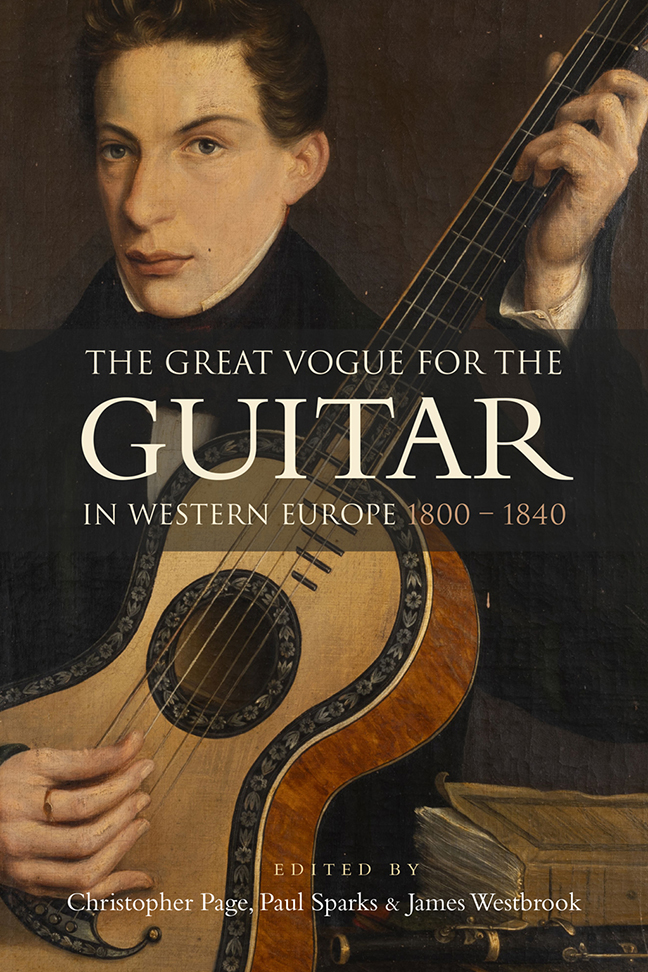Book contents
- Frontmatter
- Dedication
- Contents
- List of Illustrations
- Music examples
- The editors and the contributors
- Foreword
- Acknowledgements
- List of Abbreviations
- Introduction: The Great Vogue for the guitar
- I Contexts
- II The repertoire and its composers
- Appendix: A note on string-making
- Glossary of guitar terms
- Select Bibliography
- Index
4 - Printing and publishing music for the guitar
Published online by Cambridge University Press: 10 January 2024
- Frontmatter
- Dedication
- Contents
- List of Illustrations
- Music examples
- The editors and the contributors
- Foreword
- Acknowledgements
- List of Abbreviations
- Introduction: The Great Vogue for the guitar
- I Contexts
- II The repertoire and its composers
- Appendix: A note on string-making
- Glossary of guitar terms
- Select Bibliography
- Index
Summary
As the nineteenth century began to unfold, there was a substantial growth of public interest in music. Domestic music-making was part of everyday life for the middle and higher classes, and publishers catered to this growing market with a steady flow of new and pleasing material; new publishing houses emerged, old ones expanded their activity, and music publishing became an established component of Europe's musical culture. The major capitals of Paris, London and Vienna were the chief centres of this business, but many other cities, particularly in Germany, were also places of thriving activity. Leading companies could produce a hundred editions or more in one year; at the peak of the Great Vogue, a significant proportion of the material issued by some publishers comprised music for the guitar.
Dealings between publishers and composers
Publishers were the indispensable intermediary between composer and public. In the most common business arrangement, the composers sold their music to a publisher for a one-off payment. The publisher thereby acquired exclusive rights and could sell as many copies of the composition as the market would allow; all the proceeds from the sales would accrue to the publisher (a royalty based on the number of copies sold was virtually unknown at this date). Popular composers obviously enjoyed an advantage here, for the prospect of high sales gave them a better chance of negotiating a good price for their work. They could also establish stable relationships with a publisher, to the mutual advantage of both. In Vienna, Mauro Giuliani published on a regular basis with Artaria & Co.; in Paris, Ferdinando Carulli published with Carli, Fernando Sor with Antoine Meissonnier, and Francesco Molino with Gambaro; and, in Germany, Joseph Kuffner published with Schott in Mainz – to name only a few such bonds. These were not exclusive arrangements, however, and the composer could also offer music to others; but the main publisher would normally have the first refusal.
The composer's recompense often included a certain number of free copies of the printed score, which could be sold to students and patrons. Mauro Giuliani, as some letters written during the last years of his life reveal, seems regularly to have required twelve free copies in addition to his fee. Lesser-known composers often had to settle for free copies only, without any lump-sum payment.
- Type
- Chapter
- Information
- The Great Vogue for the Guitar in Western Europe1800-1840, pp. 57 - 76Publisher: Boydell & BrewerPrint publication year: 2023



